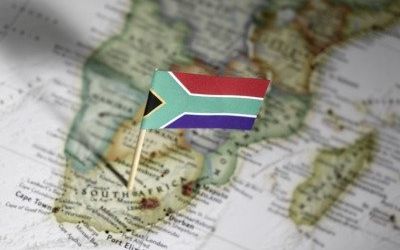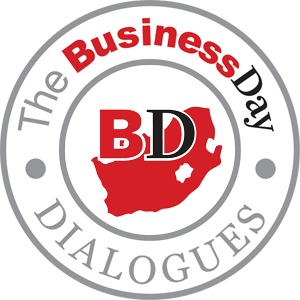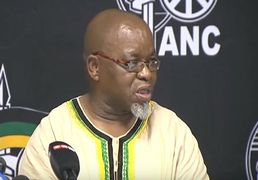SLIPPING from its perch as the continent’s biggest economy could well be the jolt South Africa’s new government needs to seriously tackle the restrictive labour laws, power shortages and other obstacles that have been crimping direct investment.
President Jacob Zuma’s government is putting a brave face on Nigeria taking over the top spot, and can take consolation from far superior infrastructure and liquid financial markets that rake in billions of dollars in portfolio flows.
But being leapfrogged has raised expectations of the African National Congress, whose re-election this week with a huge majority leaves it less beholden to unions and leftists.
"The government has spent 20 years paying lip service to the potential of our continent in speeches about the ‘African Renaissance’, but has neglected to do the hard work of opening up trade with our neighbours, overhauling the diplomatic corps and building the infrastructure our companies need to access the African market," Tim Harris, finance spokesman of the main opposition Democratic Alliance (DA), wrote in a recent column.
"As a result, we are now seriously outplayed on our own continent," he said.
The list of challenges is daunting: a high crime rate, a poor education system, a shortfall in power capacity that brought the national grid near to collapse in 2008, and labour laws that employers say deter job creation.
Growth has slipped to just 2%, far short of the level needed to cut unemployment.
'Moving faster'
Mr Zuma has hinted vaguely that he wants to "move faster" and analysts now expect him to throw his weight behind the National Development Plan (NDP), a blueprint for economic growth over the next 20 years that would, in particular, encourage more private sector involvement in infrastructure projects.
Those projects have been few and far between since a massive drive to upgrade national highways and build a world-class underground train system — the Gautrain — in the commercial capital Johannesburg ahead of the 2010 soccer World Cup.
The DA and other critics says Mr Zuma’s administration has run down a once-buoyant economy since taking power in 2009, aggravating the impact of a global economic downturn and undoing progress made by his predecessors Thabo Mbeki and South Africa’s first black and democratically elected president Nelson Mandela.
Critics say the government’s close alliance with unions has helped to entrench a rigid labour system that makes it difficult for companies to hire and fire workers and set wages.
"The labour market has been a bugbear of foreign investors, particularly corporate FDI (investors, for some time," said Nomura economist Peter Attard Montalto.
"Indeed, we have identified it, and its associated regulatory framework and institutions, in the past as the one of the largest single areas suppressing long-run potential growth," he said.
The government will also need to step up mediation efforts to end a four-month-old platinum strike that has hit output in the world’s three largest producers.
Foreign direct investment (FDI) jumped sharply after the end in 1994 of the racist apartheid system that had made South Africa a global pariah.
United Nations data show that in 2012 FDI fell to $4.6bn from $6bn from the previous year, and still lags far behind in portfolio inflows, which have helped to plug South Africa’s yawning current account deficit but are liable to dry up or reverse when global risk appetite turns sour.
Looking for evidence of reform
Investors now want to see evidence that Mr Zuma’s team will stay on a pro-business path, after staving off an electoral challenge from a new radical party whose leftist policies, including plans to nationalise mines, had rattled sentiment.
"Policy uncertainty is resulting in dwindling investment appetite in South Africa by both domestic and foreign investors," said Investec economist Annabel Bishop.
"South Africa needs to follow greater economic freedom, defined as strong property rights, freedom from corruption, regulatory efficiency, limited state intervention and open markets, to improve competitiveness and so ensure faster economic growth," she said.
In the 2013 to 2014 World Economic Forum Global Competitiveness Report, South Africa had fallen to 53rd out of 148 countries in terms of efficiency, from 45th in 2009 to 2010.
It scores badly on the perceived wastefulness of government spending and a general lack of trust in politicians, while security concerns remain a major area of concern for doing business.
"Building a skilled labour force and creating sufficient employment also present considerable challenges," the report says, ranking South Africa’s education system in 146th place.
On the quality of its state institutions, the efficiency of its legal framework and the development of its financial market, however, South Africa remains far ahead of Nigeria with its West African rival — ranked 120th on these aspects in the competitiveness report — hampered by its failure to diversify its economy from oil, the weakness of its institutions and high levels of corruption.













 News, views and analysis of South Africa's national and provincial elections
News, views and analysis of South Africa's national and provincial elections













Change: -0.47%
Change: -0.57%
Change: -1.76%
Change: -0.34%
Change: 0.02%
Data supplied by Profile Data
Change: -1.49%
Change: -0.37%
Change: -0.47%
Change: 0.00%
Change: -0.49%
Data supplied by Profile Data
Change: 1.22%
Change: 1.57%
Change: 1.13%
Change: 0.81%
Change: 1.17%
Data supplied by Profile Data
Change: 0.11%
Change: -0.84%
Change: -0.07%
Change: -1.21%
Change: -1.13%
Data supplied by Profile Data